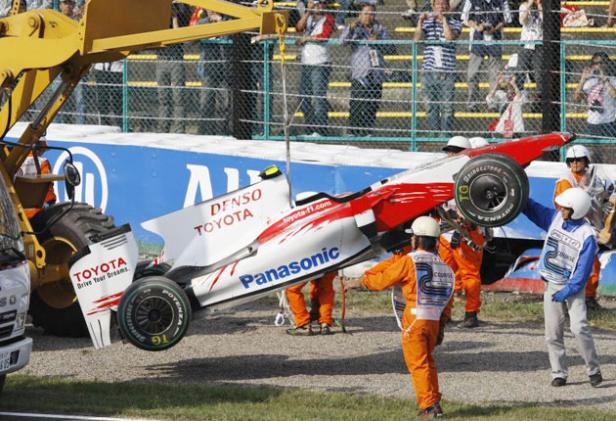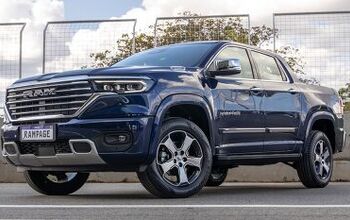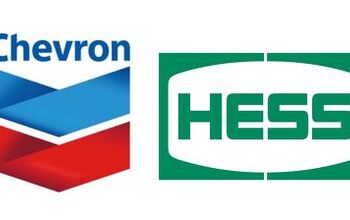Ask The Best And Brightest: Has "Win On Sunday, Sell On Monday" Died?

Last week Toyota followed the lead of Renault, Honda and BMW and bid adieu to Formula 1 racing. The Financial Times pins Toyota’s decision not only on financial belt tightening, and on the notion that racing just doesn’t move the metal in times of increasing environmental concern. When Leonardo DiCapro becomes the inspiration for an electric car and NASCAR talks about moving from carburetors to fuel injection to save some gas , you know something is afoot. Automakers and part suppliers have been backing away from the racing for many months now. Earlier this year both Subaru and Suzuki exited World Rally Championship racing and Bridgestone recently announced it’s giving up being Formula 1’s exclusive tire supplier.
“Win On Sunday, Sell on Monday” sure hasn’t done the trick for Toyota’s Tundra. Tundras (or their look-alikes) are dominating NASCAR’s Camping World Truck Racing Series, but are also-rans on Monday. Are the racing cut backs just a transient part of tough economic times, or has the tide shifted such that racing sponsorship looses a company as many customers through lack of Green Cred as it gains from the dwindling base of piston heads? Is auto racing still a potent sales tool for car companies, or are those days over?

More by John Horner


































Comments
Join the conversation
If there is a race series where the race cars look nearly identical to production cars, then yes you can "race on Sunday, sell on Monday." Look at the WRX and Evo as prime examples. I'm sure the Speedvision Challenge from a few years ago helped to sell a few more Acuras when the Realtime guys were running at the top all the time. What about the Miata Challenge series (I can't remember the exact name) - looks good for selling Miatas! There are series like NASCAR and F1 that have become mini soap operas, more having to do with driver personalities and politics than the actual cars themselves. These series do not help to sell cars at all. It boggles the mind that GM and Chrysler took our tax dollars in bankruptcy, yet still run in NASCAR.
NASCAR still uses carburetors? WTF? When did FI cease being exotic? 30 years ago.
I was a race manager for a PWC manufacturer during the early years of jet-ski type racing and it was thought that our many championships sold boats, and I'm sure it sold a few. As always, a few screw it up for the many. A lot of recreational riders acted like idiots on the water trying to be racers, causing restrictions on PWC use in several areas. Those restrictions caused a drop in sales. Suddenly the corporate marketing department was looking at my $4.5 millon budget, saying it was actually costing them sales. Marketing manager: "Do you know how many family fun ads I can do with this money? Let your racers work out their contracts and shut the department down." So the emphasis on performance changed to family fun and a more wholesome image. I think things are going the same way in the auto industry. Performance is now measured in miles per gallon. Since most race cars haven't resembled the real thing in years (NASCAR isn't fooling anybody). I don't think win on Sunday sell on Monday has applied for at least 20 years.
There's a wider question about the effectiveness of sports sponsorship in general. For some automakers and with some racing series there still seems to be a connection between a presence on the track and customer brand loyalty. Racing is certainly part of Ferrari's overall marketing strategy and vital to the brand, though it probably doesn't make sense for major manufacturers to dump hundreds of millions into F1. In what I consider to be F1's heyday, the 1960s and 1970s, the series was populated by a couple of small car companies, Ferrari and Lotus, who started out as race car builders, not road car manufacturers, as well as other specialist racecar builders like Williams etc. Mazda's spec racing series and Formula Ford have helped those brands. DTM and other European stock based race cars also seem to engender brand loyalty. So involvement in racing can still be part of an automaker's marketing strategy.